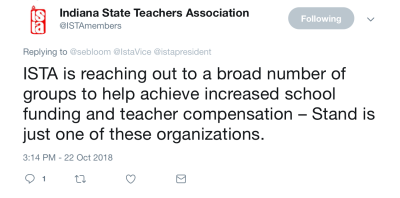John Thompson: The Negative Effects of Corporate Reform and Disinvestment in Education
John Thompson, historian and teacher, lives in Oklahoma.
The Oklahoma press is focusing on the state’s low level of college readiness as measured by the ACT test, 16 percent, in comparison to the national rate of 27 percent. The state known for dramatic cuts in education funding is ranked 19th in the nation with an average composite score of 19.3. But it is missing the big picture.
The average ACT composite for my old school, Centennial, is 14.8, which is above average for the high-poverty neighborhood schools in Oklahoma City and Tulsa. Even when we were ranked last in the state, our ACT scores were significantly higher. Since I retired, Centennial received a $5 million School Improvement Grant. I believe that its ACT decline is just one example of evidence explaining how and why tens of billions of dollars of corporate school reform drove meaningful learning out of many inner city schools.
The important question is what caused the national decline. Retired PBS education reporter John Merrow argues these ACT-takers “have had 12 or 13 years of test-centric education, and the kids coming up behind them have also endured what the ‘school reformers’ designed.” He also asks, “How much more evidence do we need of the folly of ‘No Child Left Behind’ and Education Secretary Arne Duncan’s ‘Race to the Top’ before we take back our schools?”
Since reformers sought to improve low-performing schools, it is significant that Merrow cites the ACT report on recent outcomes:
A higher percentage of students this year than in recent years fell to the bottom of the preparedness scale, showing little or no readiness for college coursework. Thirty-five percent of 2018 graduates met none of the ACT College Readiness Benchmarks, up from 31% in 2014 and from 33% last year.
All types of researchers are contributing to the autopsies being performed on data-driven, competition-driven reform. And many of us are especially intrigued by the analyses of corporate school reformers on why test-driven accountability, the expansion of charter schools, and the quest to “build a Continue reading: John Thompson: The Negative Effects of Corporate Reform and Disinvestment in Education | Diane Ravitch's blog

















